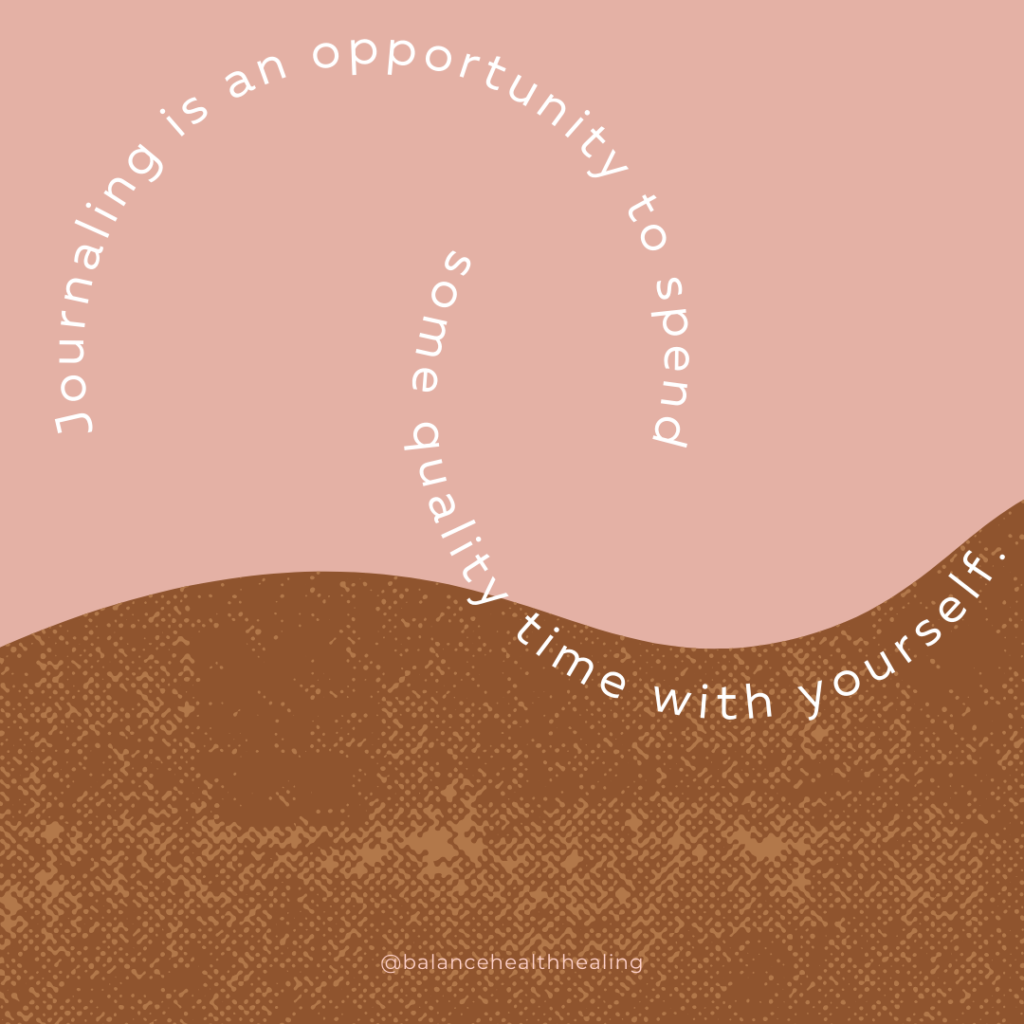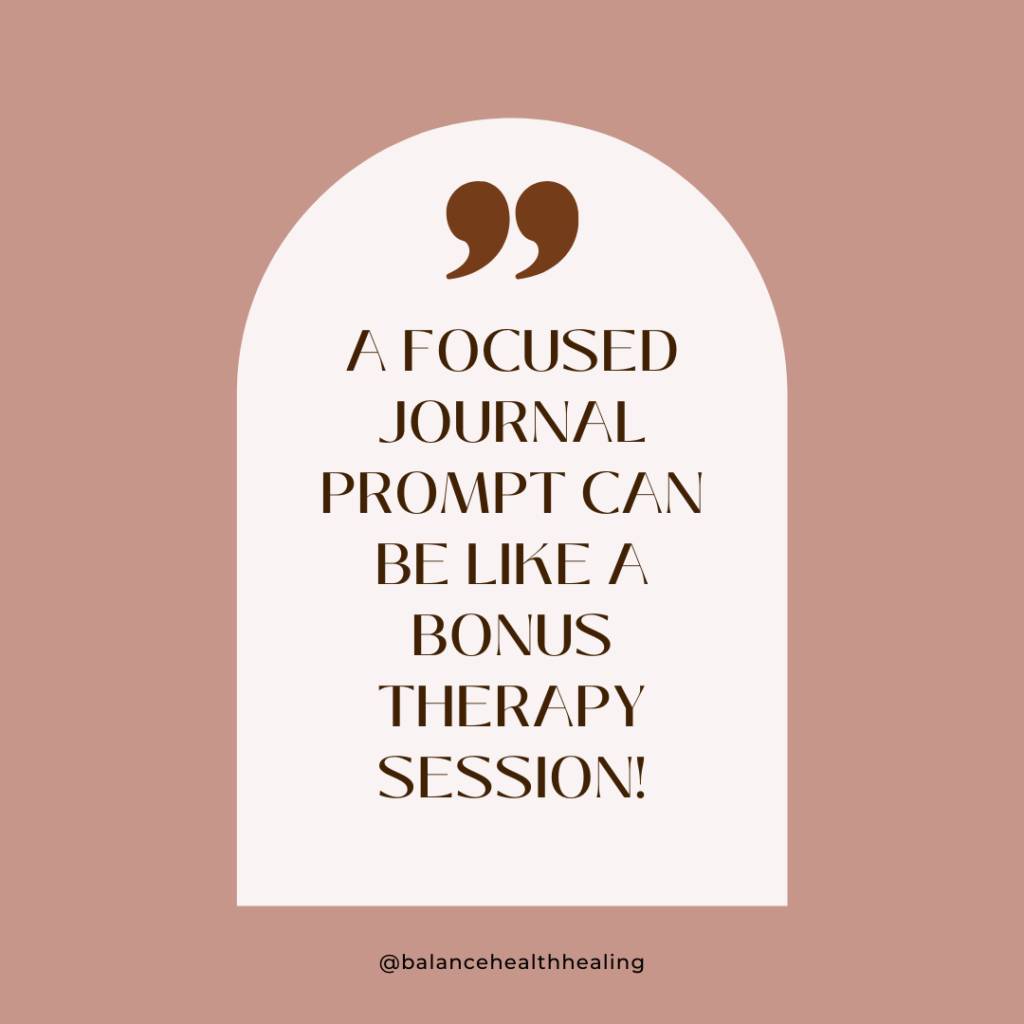Let’s talk about how journaling can help you in eating recovery. I’m not necessarily referring to journaling as in, “Dear Diary, today I…” (although that type of journaling can be great!). Rather, I’m talking about the practice of processing thoughts and feelings through writing. I know, journaling does not come easily to some. We all process things differently, and journaling doesn’t appeal to everyone. That being said, I do give journal prompts out to many of my therapy clients as a supplement to the work we do in therapy. Here are a few reasons why:
some. We all process things differently, and journaling doesn’t appeal to everyone. That being said, I do give journal prompts out to many of my therapy clients as a supplement to the work we do in therapy. Here are a few reasons why:
- Responding to a specific journal prompt can help you dig deeper into thoughts that you might not typically approach. Jotting down even a few lines in response to a writing prompt can take you down a path of exploration that you might not otherwise encounter.
- Journaling is an opportunity to spend some quality time with yourself. Self-reflection through writing can be a powerful tool for connecting with your internal world. Taking some time to write can help you acknowledge and understand your emotions and needs.
- Writing can help you unravel tangled thoughts and feelings. Turning experiences into concrete words can be tough, but engaging with your thoughts and feelings this way can help you make sense of what you’re going through. Some research suggests that putting your feelings into words can help your brain regulate emotional responses. (1)
- Journaling gives you something to look back on. There can be power in looking back at journal entries written months or years in the past, and seeing the evolution of your perspective, your successes, and your circumstances. Especially in eating recovery, it can sometimes feel difficult to see progress. Recording your thoughts throughout your recovery process can help you see that you really are growing and changing.
- A focused journal prompt can be like a bonus therapy session! (Sounds super fun, I know.) Therapy is great, and it’s only a 50-minute blip in your week. Adding a focused journaling activity between sessions can help you get more out of the work you started in a session and can set you up to make the next session more productive. Trust me, your therapist would love to hear about any journaling you do between sessions. Journaling is an opportunity to stay connected with your work between therapy sessions.
 Below are some journal prompts you might find helpful in your eating recovery process. Pick whichever one speaks to you, write down today’s date, and see where your writing takes you.
Below are some journal prompts you might find helpful in your eating recovery process. Pick whichever one speaks to you, write down today’s date, and see where your writing takes you.
– What made my most recent recovery “win” possible? Write about (1) a person or resource and (2) a choice you made that contributed to your success.
– Write about one step forward in your recovery that you know you need to take, but haven’t yet. What could change if you take that step?
– Asking for help is a vital recovery skill, and may require you to think outside the box. Write down one thing you can ask for from each of the following people to support your recovery: your therapist, your best friend, a family member.
– Write a letter from your future self, 10 years from now. How do you imagine your future self will feel towards your current self and what you’re going through right now?
– What do I hope will happen if I accept my body as it is? What do I fear will happen if I accept my body as it is?
– What was the take-home message from my last therapy session? What are my intentions for applying that message this week?
Source:
- Torre, J. B., & Lieberman, M. D. (2018). Putting Feelings Into Words: Affect Labeling as Implicit Emotion Regulation. Emotion Review, 10(2), 116–124. https://doi.org/10.1177/1754073917742706

